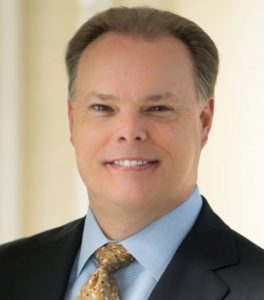A trip home to be with family in the face of an illness gave an interesting lens to the dynamics of return. Then on the heels of that, the memorial service of a formative ministry figure called the writer also to return to a city in which he had served previously.
All of this begged a question: Can you go home?
In his novel published posthumously, author Thomas Wolfe showed readers a fictional character who himself had written a great novel. Described as a fledgling author, the story shows this character make his initial run at publishing a story. In Wolfe’s novel, this writer actually achieved great commercial and critical success with that book.
Readers the world over, it seems, were talking about the marvelous stories he crafted. Trouble is, folks in his hometown recognized themselves in his book. Would his next visit home be a triumphal return?

Charles Qualls
To the contrary, Wolfe’s character is greeted at home quite coldly. People haven’t appreciated the candor with which he has portrayed their town in the book. He learns that now he is a successful man without a hometown in which he will be welcomed.
Like Wolfe’s character, I recently went home to where I was raised. Then, I also immediately returned to a beloved city where my wife and I once served. What did I find when I visited places where I no longer lived?
The journeys began when a family member received a concerning diagnosis. A dangerous surgery was scheduled. My church leaders encouraged me to take off and go be with my family during an anxious time. So, I did.
Here’s where things get quirky in the story. You see, my old childhood address is also my mother’s relatively new address. Did that make sense?
“You see, my old childhood address is also my mother’s relatively new address.”
My mom and dad raised us on a piece of farmland they owned for 35 years. When I was born there, the town was quite small. As in 2,400 people small. It was a country village filled with family owned farms. It seemed we all knew each other, largely because most of us did know each other.
However, Atlanta’s sprawl infused a rapid growth dynamic. By the time I left for college at 17, there were 50,000 people living in the same town. All these decades later, my hometown has doubled again. After 35 years owning the farm where we were raised, my parents sold the land. Specifically, they sold to a group who were developing a large Catholic complex of schools, churches and a nice, upscale retirement community.
Fifteen years after selling, and now in their mid-80s, our parents decided they might like to occupy an apartment in the retirement community. So they sold their house and moved in. Right where we used to live.
What I mean is that the street address is exactly the same as it was in my childhood. Except nowadays, we add an apartment number if we send something. The central wing of the retirement complex is located on the footprint of our former home. My mom’s dinner table overlooks what used to be our front yard.
We lost our dad a couple of years back, but our mom still thrives there in her early 90s. My visit was just as important for her comfort as it was to visit with the family members most affected by this illness and surgery. So, I spent a few nights there. I took my mom shopping, we ran errands. I bought her breakfast and dinner each day. We talked and told stories.
“Save one employee, no one who works or lives at my former address really knows who I am.”
Save one employee, no one who works or lives at my former address really knows who I am. Ironically, when I enter the door that is nearly where our own front door used to sit, I have to enter my personal information into a keypad and print out an ID sticker. I must wear it anytime I am on the grounds so anyone can tell I belong.
When we run across to what used to be our neighbor’s place to pick up an order of takeout nachos from what is now a Taco Mac franchise, the teenagers who hand me my order have no idea who I am. Where my dad’s store used to be, there’s a bank now. I can go in there and never run into anyone I recognize.
I flew to our current home a few days later, having spent meaningful time with my family. Two days later, my wife and I made a day trip down to another city we used to live in. Now, a scheduled memorial service for Randall Lolley awaited. He was the pastor when the church called us to serve there.
Elizabeth and I drove the few hours down to Greensboro, N.C., and back. There, we realized we had just enough time to grab a bite at our favorite old restaurant before the 1 p.m. service. On the way into town, we drove straight to the shopping center. But would the place be remotely the same?
Actually, it was oddly similar to what we remembered. The layout and furnishings had not been touched, save what was an obvious recent refurbishment. Freshly polished brass and newly stained wood appeared as good as new. Our favorite order was still featured on the menu, although we had moved away more than 20 years ago now.
“On the way into town, we drove straight to the shopping center. But would the place be remotely the same?”
We were amazed, actually. We had no right to expect the place to still be there. Much less look like they had locked the doors right after our last dinner there and simply not touched the place.
Now, we arrived at the church. First Baptist Greensboro still has so many of the fabulous parishioners we recall. Our years there were so rich. But would anyone even know us?
So early were we that the building was not yet open. A familiar voice directed us via the intercom to the appropriate door. We were buzzed in, and soon the smile of one of our closest friends from back then greeted us in the hallway.
We later would sit with her and her husband during the service itself. We have stayed in touch, so catching up was easy and natural.
For a while, we simply wandered the familiar building and reminisced. Things looked different, to be sure, but there was plenty of what we saw that was just as we had remembered. We even found a photo or two on the walls in which we appeared from way back when.
Now, the Baptist mini-reunion that was Lolley’s service began to collect. We chatted and caught up with laypeople and friends from Baptist life. There were deep smiles and great stories. Then, the service started. Afterward, we gathered enough of us who had served with him there that we took an alumni photo together.
Here is where I should admit my surprise. Because I really hadn’t gone in with big expectations. I didn’t know who we would see. Of those, so much time had passed. Would we reconnect meaningfully?
As we left, the couple we sat with pledged to travel our way and spend some time with us at our home up in Virginia. Now, though, cherished staff colleagues also whispered, “Hey, are you all in a hurry? Couldn’t we go somewhere and catch up?”
With an offer like that, we were game completely. Across the street, we sat for well over an hour. A bed and breakfast there served us coffee and we enjoyed a beautiful garden setting as we visited.
“I was equal parts thrilled and surprised as I took in the deep, grounded conversation.”
I was equal parts thrilled and surprised as I took in the deep, grounded conversation. We absolutely picked up where we had last left off sometime ago. As with our other friends from the congregation, we left there with a pledge to host this couple, too, as they visited soon up our way.
Both cities share a striking quality: Nowadays, I can feel like a stranger there. I lived significant stretches of my life in each place. Yet I can return and visit without running into anyone I recognize out and about. In my hometown, the vast majority of residents today probably didn’t even live there yet back when I moved away.
So, can you go home again? I believe you can, but I’m not sure everyone is wired to do so. Disappointments are borne of overcooked wants or assumptions, I am convinced. The math (population) and time (that lapsed since I moved away) are not in favor of me simply walking back in and everything fitting like a glove.
The notion of return is woven deeply into the words of our faith. Although true Hebrew scholars would chide me for my transliterative misspelling, there is an ancient word in Scripture that appears over and over again. God’s call upon people is to shubv or to “return.”
God longs for humanity to return, both individually and collectively, to fellowship with our Creator. Maybe the longing to return also is placed deep inside some of us. There may be places you have no interest in seeing again. But there may be that place you’d like to return to and see if there’s anything still there for you.
“God longs for humanity to return, both individually and collectively, to fellowship with our Creator.”
So, go back to the places of your past if you’d like. You can. But you sure can’t expect things to have stayed the same. They won’t be. If that’s your definition of going home again, then if any time has passed, you can’t.
In my case, I am the one who moved away. These great cities didn’t go anywhere. So my expectations are fairly low when I visit a place from earlier in my life.
I take in any good thing that happens as grace. Any fun reunion with an old friend is a gift. Anyone who recognizes me is an unassumable serendipity. Anything more expected probably would make it impossible for me ever to go home again.
Charles Qualls serves as pastor of Franklin Baptist Church in Franklin, Va. He is the author of eight books.


